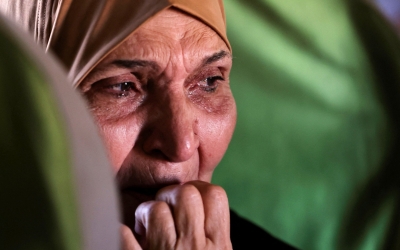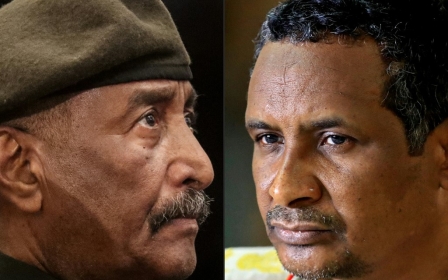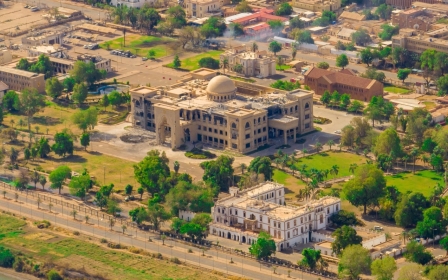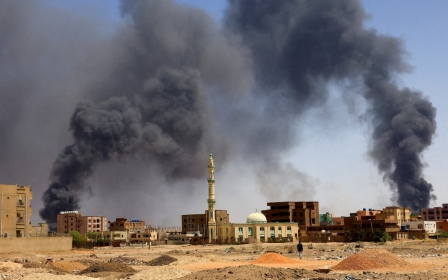Egypt's visa restrictions split up thousands of Sudanese families fleeing war
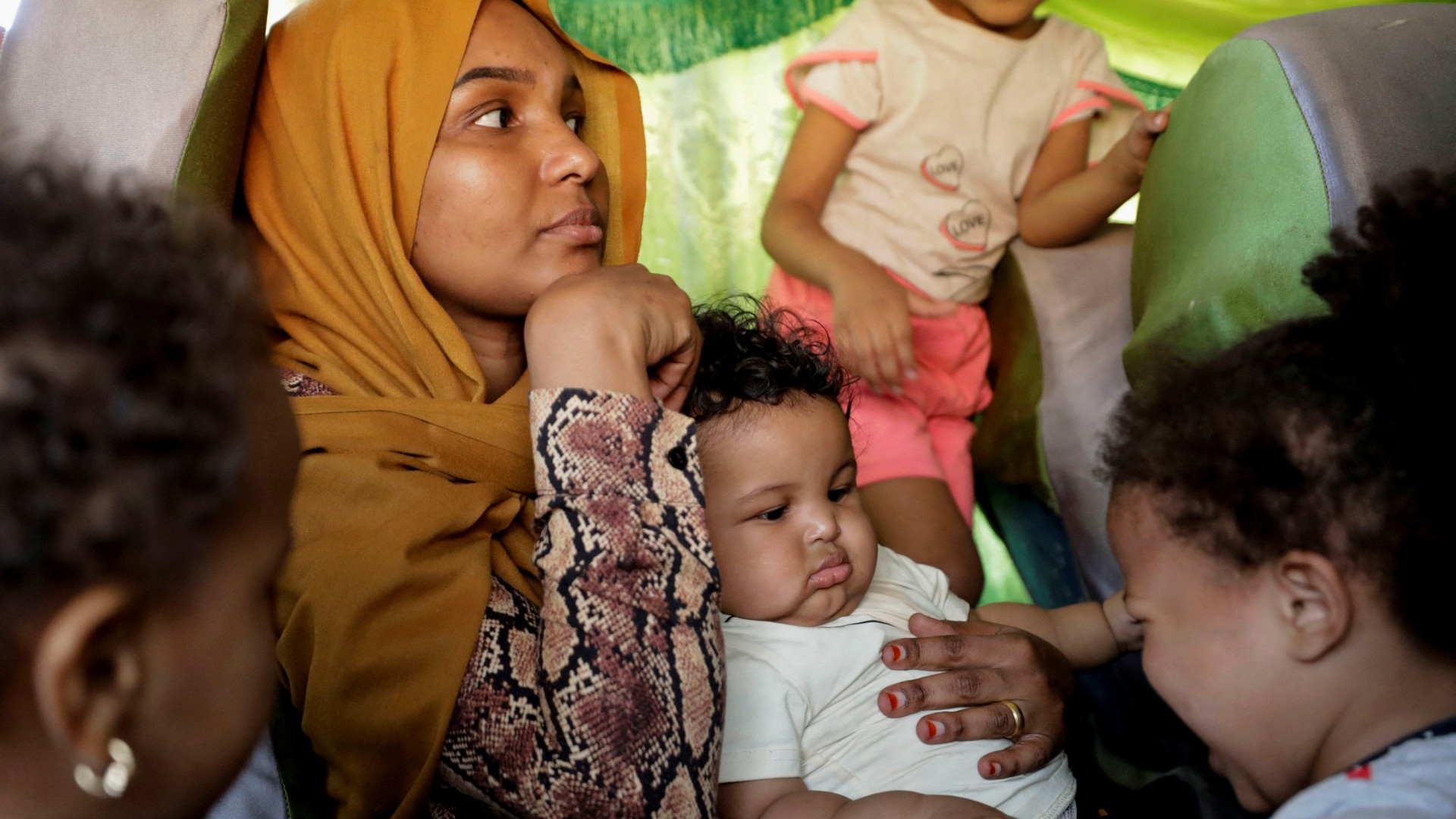
The ongoing war in Sudan has caused tens of thousands of civilians to flee to neighbouring countries. Most of them made their way to Egypt, which allowed women, children and the elderly to cross at a snail's pace, but many men were turned back for visas.
“I'm in a foreign country with my children and I know no one, while my husband has been trapped outside the Egyptian consulate in Halfa for 21 days,” said a 37-year-old Sudanese woman who arrived in Cairo with her three infants more than two weeks ago.
The woman, who preferred not to disclose her identity, told Middle East Eye that due to the closure of the Egyptian embassy in Khartoum and the raging war, she travelled with her husband and their children to the Egyptian border crossing, Argeen, 850km from Sudan’s capital, hoping to obtain a visa there, but her spouse was refused entry at the crossing.
“Our house was targeted by aircrafts, and we left it running. I did not even take my children's certificates with me. I don’t know when my husband’s visa will be issued and how we will settle in here without him,” she added.
Around 83,758 Sudanese nationals have so far crossed the border into Egypt since the conflict in Khartoum erupted on 15 April, according to the UNHCR.
New MEE newsletter: Jerusalem Dispatch
Sign up to get the latest insights and analysis on Israel-Palestine, alongside Turkey Unpacked and other MEE newsletters
Most of them are women, children and the elderly, who do not need visas to enter Egypt. But Sudanese men aged 16-49 do.
Lugain Mahmoud, 28, along with her husband, and his 19-year-old brother, are among thousands stranded outside the Egyptian consulate in Wadi Halfa, north of Sudan.
Since they fled Khartoum on 26 April, her brother-in-law has suffered many diabetic coma episodes, from “stress, exhaustion and the hard circumstances of the trip and staying in Halfa”, she told MEE.
“I am not planning to leave without my husband. What if they don't grant him a visa for one reason or another? We will be stuck on two different sides with no knowledge of how or when we will be reunited again,” Lugain said.
'I am not planning to leave without my husband. What if they don't grant him a visa for one reason or another?'
- Lugain Mahmoud, Sudanese refugee
She added that while her mother and younger sisters have crossed the border to Egypt and they will need assistance in settling in, she cannot leave her husband behind.
Lugain and another Sudanese man waiting outside the Egyptian consulate told MEE that people in Halfa are sleeping on the ground, and many others have run out of money waiting to receive their visas.
“Halfa is a small city with about 5,000 residents. Around 15,000 people have arrived over the past few days, and there are no accommodations for all of us; we sleep in mosques, streets, and schools,” said the Sudanese man who preferred to remain anonymous.
According to sources who spoke with MEE, about 5,000 to 7,000 passports have been submitted to the Egyptian consulate, which issues 70 to 100 visas daily. This means Lugain's husband and brother-in-law will have to wait at least a month and a half for their visas.
Thousands more people are expected to arrive in Halfa over the next few days, as the Sudanese army and paramilitary group the Rapid Support Forces escalate their hostilities.
UN urges ‘non-discriminatory access’
In an open letter, many Sudanese activists and writers have urged the Egyptian government and UN to ease the entry of Sudanese refugees fleeing war, including men aged 16-49, under the 1951 Refugee Convention and the 1967 Protocol relating to the status of refugees.
The protocol, signed by Cairo, states that “no one shall expel or return a refugee against his or her will, in any manner whatsoever, to a territory where he or she fears threats to life or freedom”.
UNHCR's external relations officer in Egypt, Christine Beshay, told MEE that the UN emphasises the importance of access to territory and asylum to anyone fleeing violence and conflict, regardless of their age or gender. “[UNHCR] has been urging all countries to allow civilians fleeing Sudan non-discriminatory access to their territories,” she said.
Egypt’s state-owned TV station Al-QAhera News quoted Egyptian officials saying that Sudanese men without visas are not likely to be allowed entry to Egypt, after many Egyptian activists called for visa-free borders for Sudanese fleeing conflict.
“Thousands of people are trying to obtain visas to enter Egypt and that resulted in a build-up, especially in Halfa where the Egyptian consulate is now. Processing all these people is taking time and causing delays in movement,” Beshay said.
“UNHCR is in constant dialogue with the authorities in Egypt and neighbouring countries, and advocates all states to ensure access to territory and protection for all those fleeing the conflict regardless of their age or gender."
Middle East Eye delivers independent and unrivalled coverage and analysis of the Middle East, North Africa and beyond. To learn more about republishing this content and the associated fees, please fill out this form. More about MEE can be found here.


